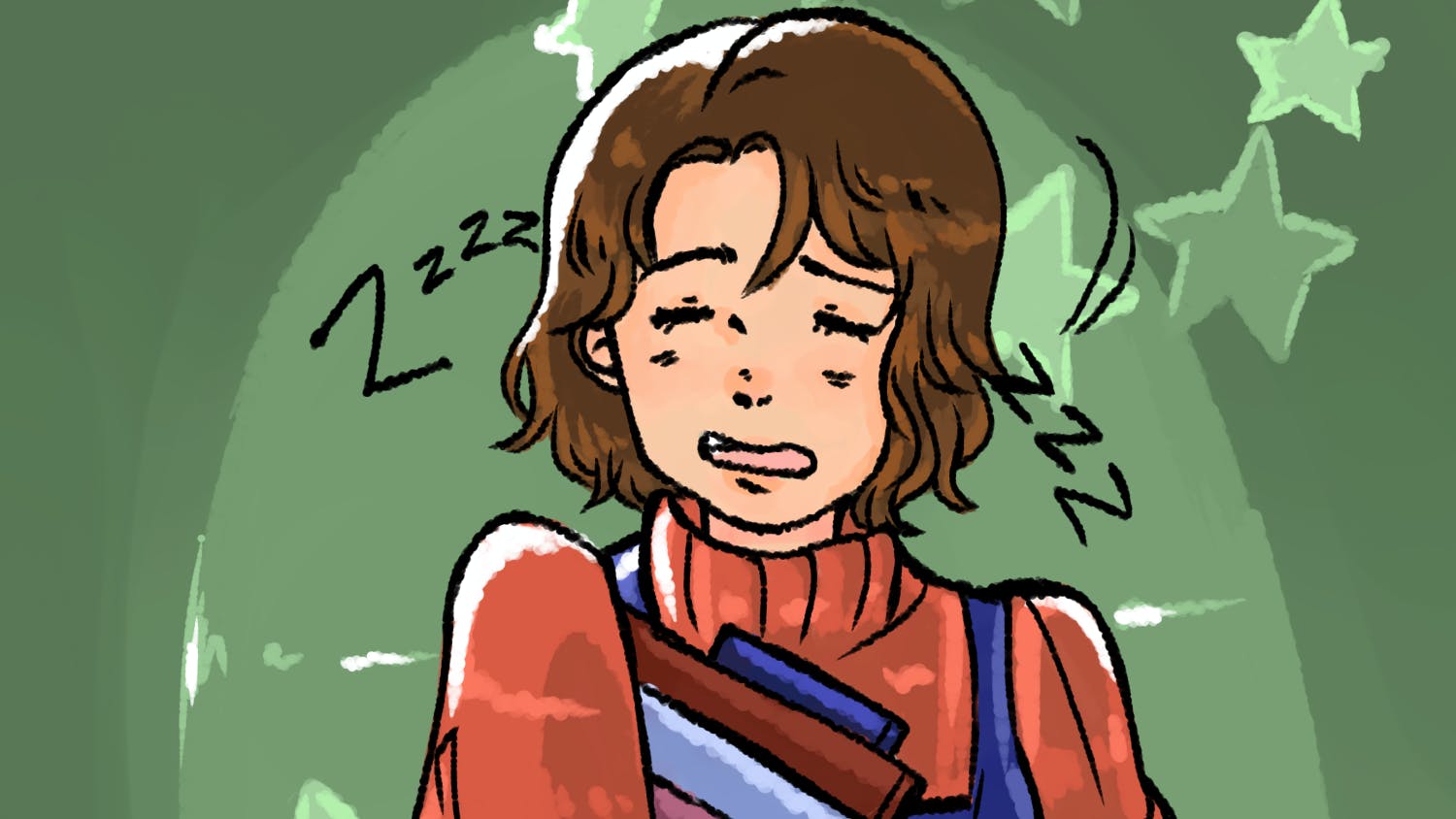A boy living on my floor freshman year laughed as his friend called him “retarded” for missing the point to his joke.
Retarded is a word loosely used in American society, often suggestively linked with other derogatory words like “idiot” or “stupid.” Somehow, many people don't realize the extent of the harmful damage their ignorance creates.
My aunt Debbie has Down Syndrome. She was born with intellectual disabilities, yet she does not define herself through her developmental deficiencies. She is a woman with a singular mission — she is determined to find a job in a restaurant or cafeteria. Debbie has struggled to find her dream job, which would consist of bussing tables in a local dining facility. Debbie is a hard working woman who knows what she wants. So should she be defined as "retarded?"
Do the words “mentally disabled” act as a euphemism for the word? Why has the term become so popularized and colloquial in its use? What are the implications?
Although some people casually use the word "retarded," it is not synonymous with the phrase "intellectually disabled." The "r-word" has been linked with a dehumanizing form of brainlessness. The word is used to imply that because people may be “slow,” they are ignominious and incapable of contributing anything of value. In fact, as of 2010, the United States government requires “that all documents and laws use the term ‘intellectual disability’ and not mental retardation.”
But most importantly, does Debbie notice or understand the way other people callously treat her?
The answer is yes. She sees it when people incessantly stare at her with unfriendly smirks. She sees it at restaurants, at the grocery store and at the movies. She sees it when she is at a Nationals baseball game and a couple of girls insensitively roll their eyes as they silently converse over who has to sit next to the woman that “looks different.” She may not fully understand the implications of others’ judgmental manifestations, but she does understand that people look at her differently.
John Franklin Stephens, who is distinguished for his advocacy for people with disabilities, wrote for the Denver Post in 2008. His words remain relevant in this context 10 years later as he wrote, “I can only tell you what it means to me and people like me when we hear it. It means that the rest of you are excluding us from your group. We are something that is not like you and something that none of you would ever want to be. We are something outside the 'in' group. We are someone that is not your kind.”
From my experience with my aunt, she has never let this feeling stop her from staying true to herself. She does not let others’ ignorant and condescending acts affect her. I envy her strength; I am sensitive and victim to letting others’ judgment hurt me many times.
Debbie has taught me to appreciate the joys in life we often take for granted. She gains insurmountable pleasure from eating great food (in particular, anything chocolate-related) and spending time with family. She gives me the biggest hugs. She is creative; she loves to write in her diary and, unlike many other adults, is well-organized, never misplacing anything. She almost always finds something to be happy or giddy about. She joins in with my sisters and me as we poke fun at my grandmother who cries during any remotely sad moment of a television show. She has a big, beautiful laugh. People with disabilities face struggles, but they are not much different from us. And we can learn from them.
People’s contemptuous acts may not affect Debbie, but they affect me. Perhaps people’s condescension would propel me to be embarrassed to be associated with Debbie, but instead it does the opposite; it only makes me feel more protective of her. Our indifference to the plight of minorities and those intellectually and physically disabled has been cultivated for years.
Using the word “retard,” “retarded” or any other form of the word for people with intellectual disabilities in this day and age is both juvenile and alarming. The less open and willing we are to accept our differences, and the less interaction we have from those who differ from us, the more polarized and demoralizing we become. We live in a world where the "r-word" is used to jokingly degrade ourselves, but in essence, it denigrates people with disabilities.
Using the "r-word," essentially, is a choice. It may not reflect your overall character, but it is a product of societal prejudice we have become accustomed to and have accepted for years.
At the same time, I have also witnessed the compassion others have displayed for my aunt. If anything, they take extra measures to make her feel special. This includes the time she was invited to twirl around at that same Nationals baseball game by one of the famous racing presidents at the game. Ice cream vendors have given Debbie an extra scoop. Our friend Blake, a DJ, volunteered to entertain Debbie and her friends for a "rocking" birthday party. These are the caring heroes among us.
People with disabilities are people worthy of respect. To my knowledge, nobody has ever used the word retarded against Debbie specifically or to her face. But that does not make people’s behavior any less contemptible or mean that other people like Debbie haven’t suffered from the use of the word. It also does not mean that other persons with disabilities have wrongfully been taunted for having mental disabilities.
The word has historically disparaged those with disabilities. We must hold everyone accountable. Even if others cannot see the beauty or value in diversity and interaction with people like Debbie, the truth is she and others bring joy into our lives.
I see Debbie and I am reminded of my good fortune; her unsevered optimism and hope that she will find a job reinvigorates my faith in my own ability to be successful in the future.
My grandmother told me over Thanksgiving that having Debbie as her child set her on an unexpected path she had not anticipated, but one she is grateful for: a deeper appreciation for life and empathy for others who face struggles far greater than our own.
We have, at least in my view, a moral obligation to resist temptations to degrade others with such a word. We have a moral obligation to speak up when others use the word or smugly look down upon persons with disabilities. We have a moral obligation to treat others with kindness even when they are different from us. This is not an eye-opening revelation. It’s a reasonable expectation.
The number of words to describe an act of stupidity are endless. But don’t use a word that unequivocally prevents intellectually disabled persons from being seen as people with equal and authentic feelings.
The higher frequency with which the "r-word" is used, the more dominant it becomes. In doing so, we are accepting a culture that perpetuates the notion that developmentally disabled persons are inferior and that they are unworthy of being associated with anything other than stupidity. It becomes harder to change culture when the "r-word" has been used for years, but it is possible.
We are all human. We often speak without thinking. But words matter. The "r-word" has no place in a compassionate and caring society, so let’s keep it out.
Gaby is a freshman majoring in political science and intending to major in strategic communication. Send all comments to opinion@dailycardinal.com.





